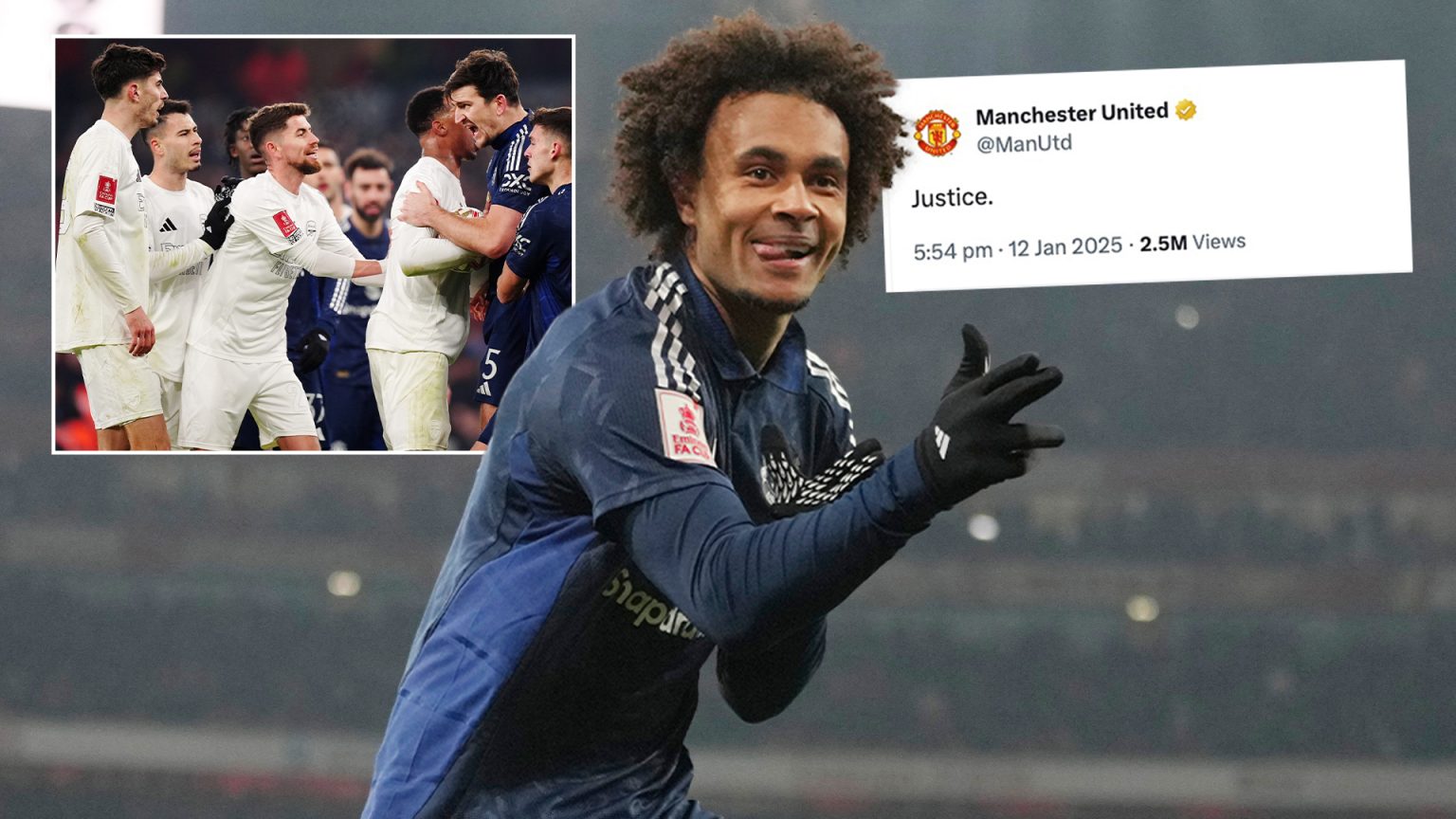Manchester United staged a valiant, against-the-odds victory over Arsenal in the FA Cup third round, securing their place in the fourth round after a dramatic penalty shootout. The match, played under frigid conditions at the Emirates Stadium, saw United dig deep following Diogo Dalot’s dismissal for a second yellow card just past the hour mark. Despite being a man down for a significant portion of the game, United showed resilience and tactical discipline to force the game to penalties and ultimately emerge victorious. The sending off undoubtedly shifted the momentum of the match, forcing Manchester United into a more defensive posture and offering Arsenal a numerical advantage they struggled to capitalize on.
Goalkeeper Altay Bayindir experienced a mixed afternoon, initially culpable for a poor punch that gifted Gabriel Martinelli an equalizer. However, he redeemed himself spectacularly, pulling off a crucial penalty save during the game and denying Declan Rice twice with outstanding saves. This performance highlighted Bayindir’s ability to recover from mistakes and contribute significantly under pressure. Defensively, Matthijs de Ligt and Harry Maguire put in strong performances. De Ligt was a pillar of organization at the back, epitomized by a goal-line clearance that denied Leandro Trossard a certain goal. Maguire, despite conceding a penalty and an earlier error that fortunately went unpunished, displayed aerial dominance and made several vital blocks.
Midfield general Manuel Ugarte was a tireless presence for United, putting out fires across the pitch, although the dynamics of the game forced him to operate primarily in his own half. His combative style earned him a yellow card and a heated exchange with Kai Havertz following the penalty incident, narrowly avoiding a red card himself. Youngster Kobbie Mainoo showed flashes of promise in midfield, exhibiting sharp passing and close control while shadowing Jorginho. However, he could have done better with a headed clearance in the lead-up to Arsenal’s equalizer.
On the attacking front, Alejandro Garnacho provided a crucial outlet on the counter-attack, capitalizing on a defensive error to set up Bruno Fernandes for United’s goal. Fernandes, despite his characteristic theatrics earning him a yellow card, showcased his quality with a superb first-time finish. Conversely, Rasmus Hojlund struggled to make an impact, failing to provide a consistent focal point for United’s attack and becoming embroiled in a controversial incident involving an apparent elbow on William Saliba.
The introduction of substitutes Amad and Joshua Zirkzee injected some much-needed energy and presence into United’s attack in the latter stages, while Toby Collyer provided additional midfield support. Tyrell Malacia and Leno Yoro, brought on during extra time, fulfilled their defensive duties effectively, with Yoro confidently converting his penalty in the shootout. This collective effort from the substitutes demonstrates the squad depth and resilience within the Manchester United ranks.
Diogo Dalot’s sending-off undoubtedly impacted the game’s trajectory. His two yellow cards, both for needless fouls, put his team under immense pressure. While Dalot’s attacking contributions can be valuable, his rash decision-making in this match proved costly and forced his teammates to compensate for his absence. This incident highlighted the need for greater discipline and game management, particularly in high-stakes encounters.
Overall, Manchester United’s victory was a testament to their resilience, tactical adaptability, and the individual brilliance of certain players, particularly Bayindir. Despite being reduced to ten men, they weathered the Arsenal onslaught and capitalized on their opportunities, ultimately prevailing in the high-pressure environment of a penalty shootout. While areas for improvement remain, particularly in attack and disciplinary control, the win provides a valuable morale boost and underlines the team’s never-say-die spirit. The performance also showcased the potential of younger players like Mainoo and Garnacho, hinting at the future development of the squad.
The victory against Arsenal, a strong rival, carries significant weight and demonstrates Manchester United’s ability to compete with top-tier opposition even under challenging circumstances. The FA Cup progression provides a platform for further development and offers the opportunity to build momentum and confidence as the season progresses. This type of resilient performance can serve as a building block for future success and highlights the importance of squad depth and tactical flexibility. Overcoming such adversity can strengthen the team’s resolve and build a stronger sense of unity within the squad.
This victory will undoubtedly serve as a talking point and provide valuable lessons for both teams moving forward. For Manchester United, it reinforces the importance of discipline and maintaining composure under pressure. For Arsenal, it underscores the need to capitalize on numerical advantages and convert opportunities into goals. The match offered valuable insights into the strengths and weaknesses of both sides, setting the stage for future encounters. This detailed analysis provides a comprehensive overview of the game, focusing on individual performances, key moments, and the overall tactical dynamics that shaped the outcome.




